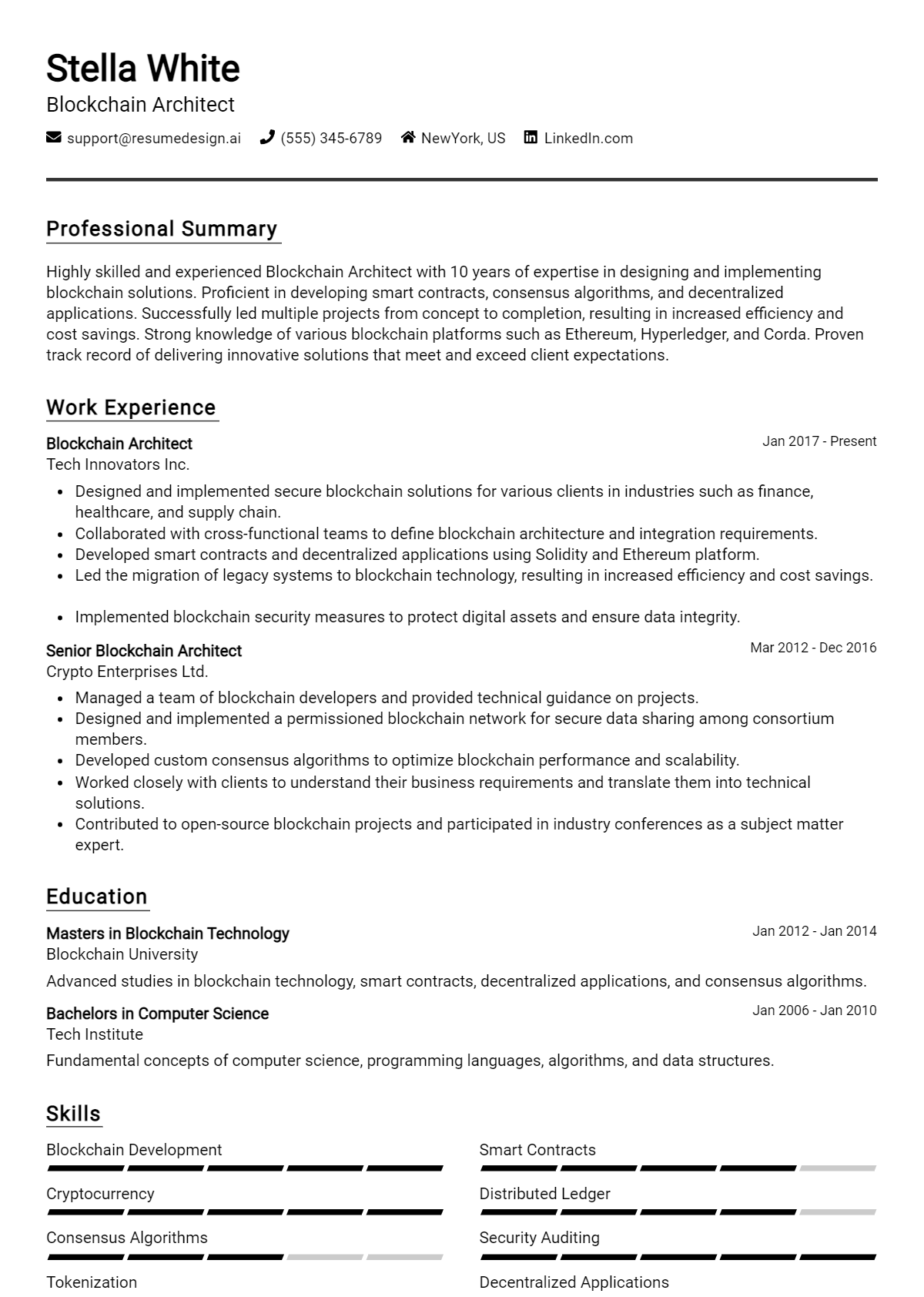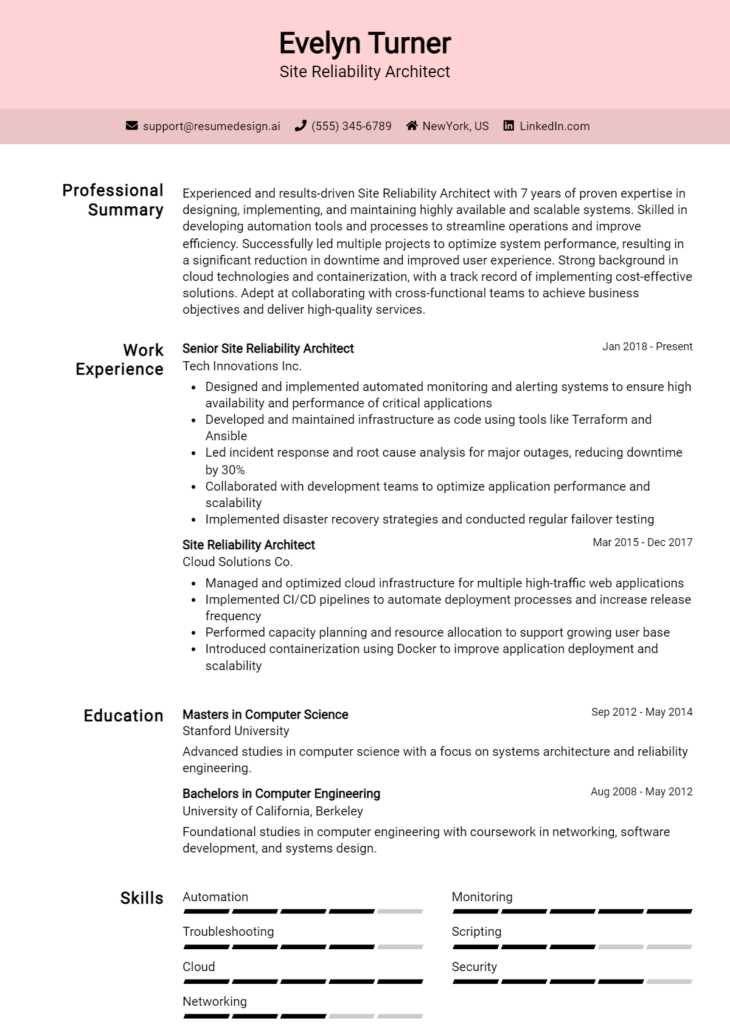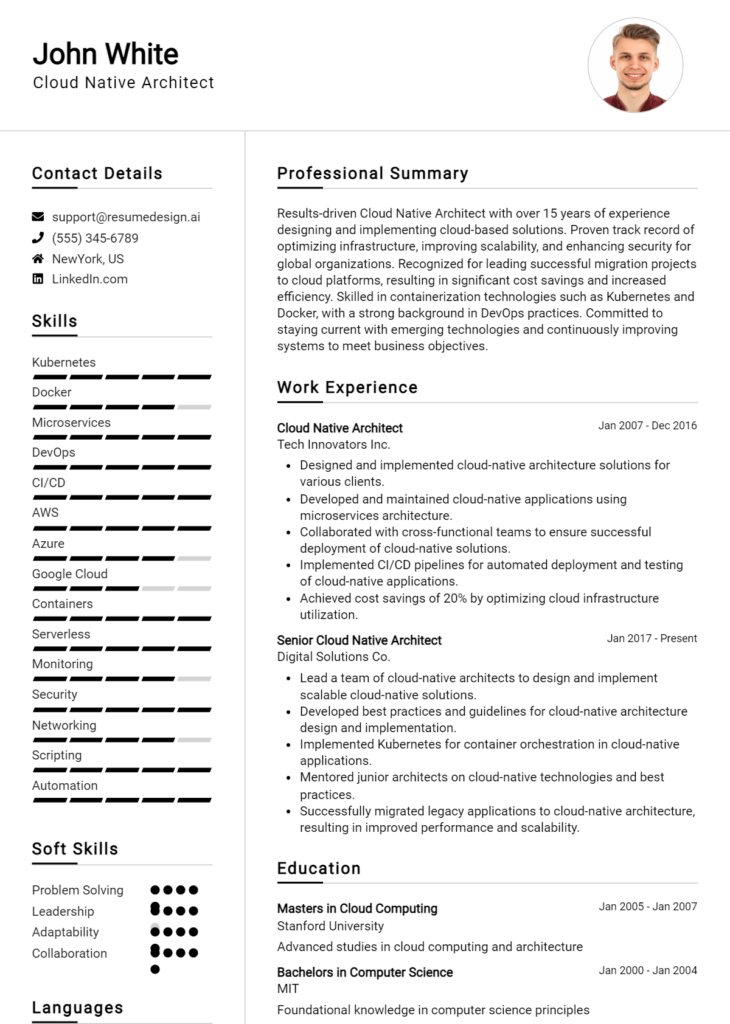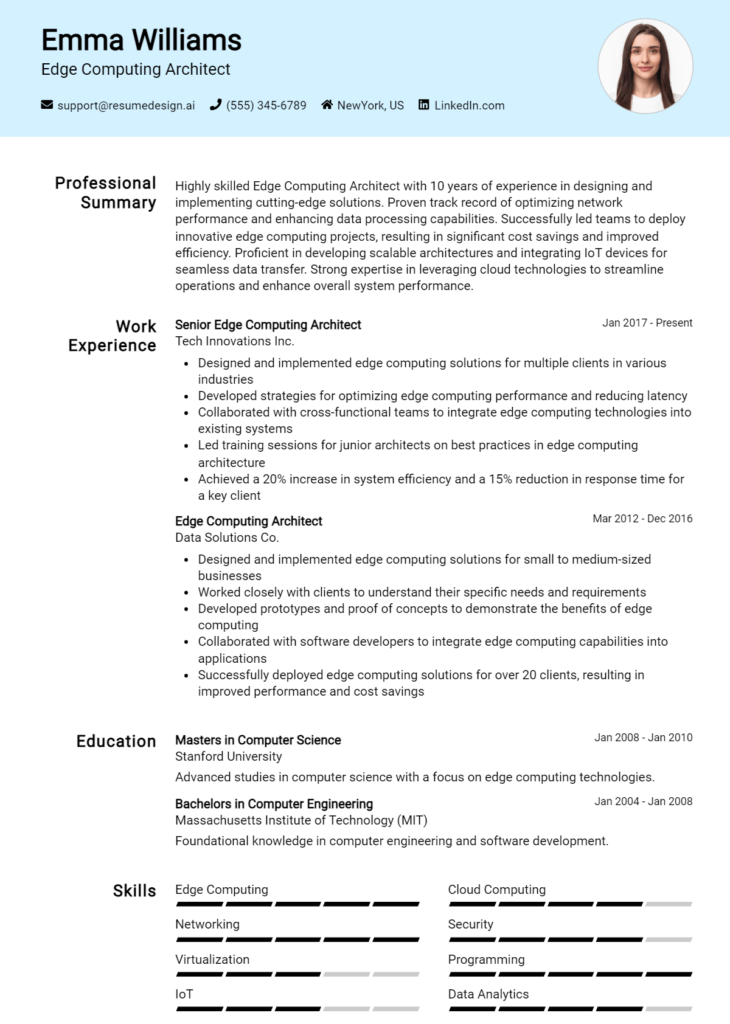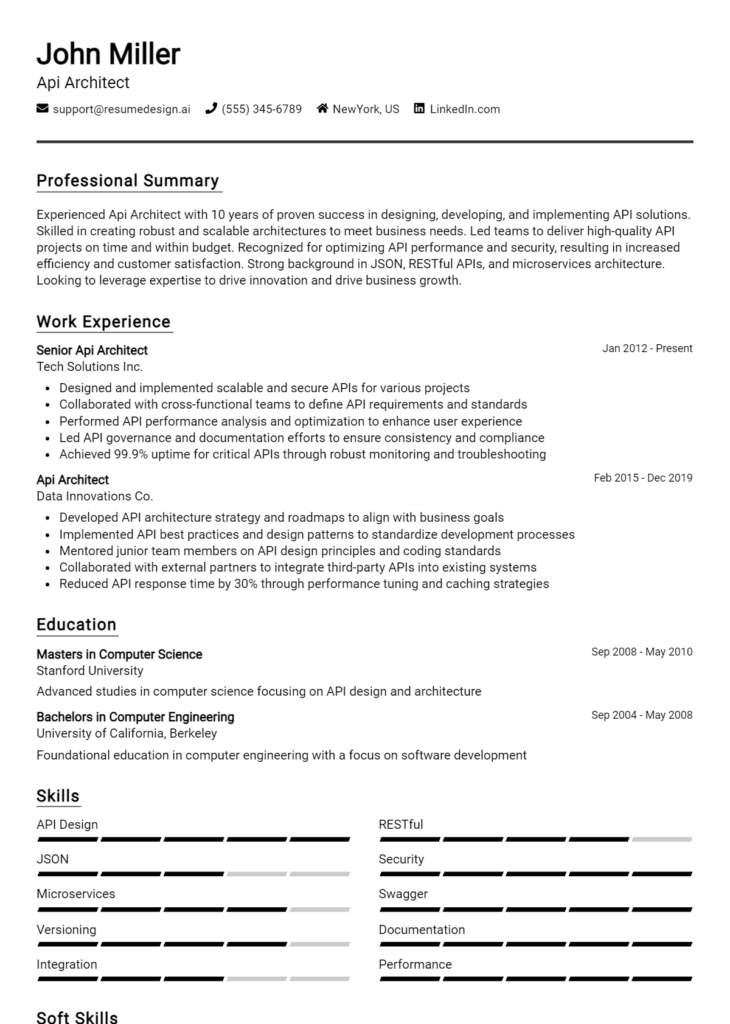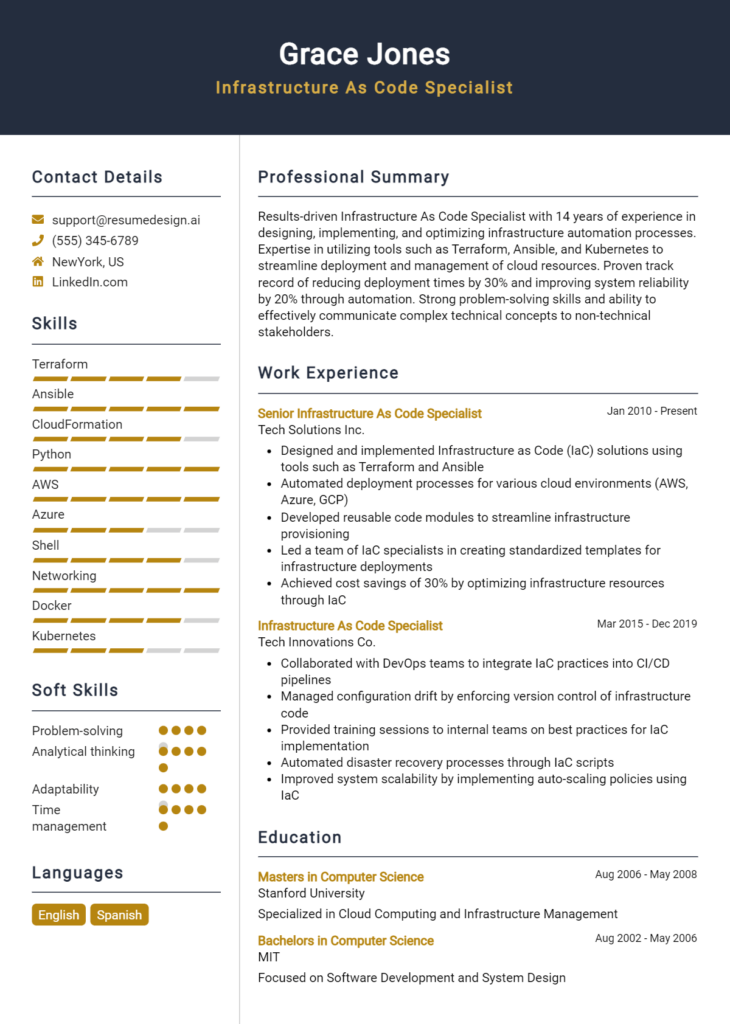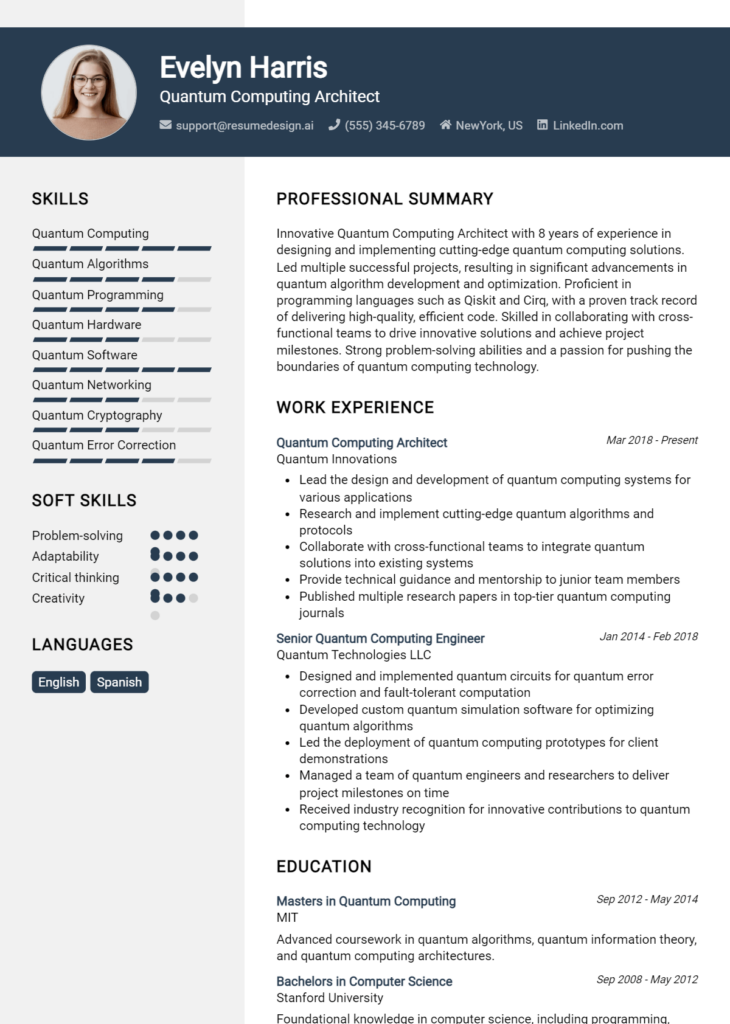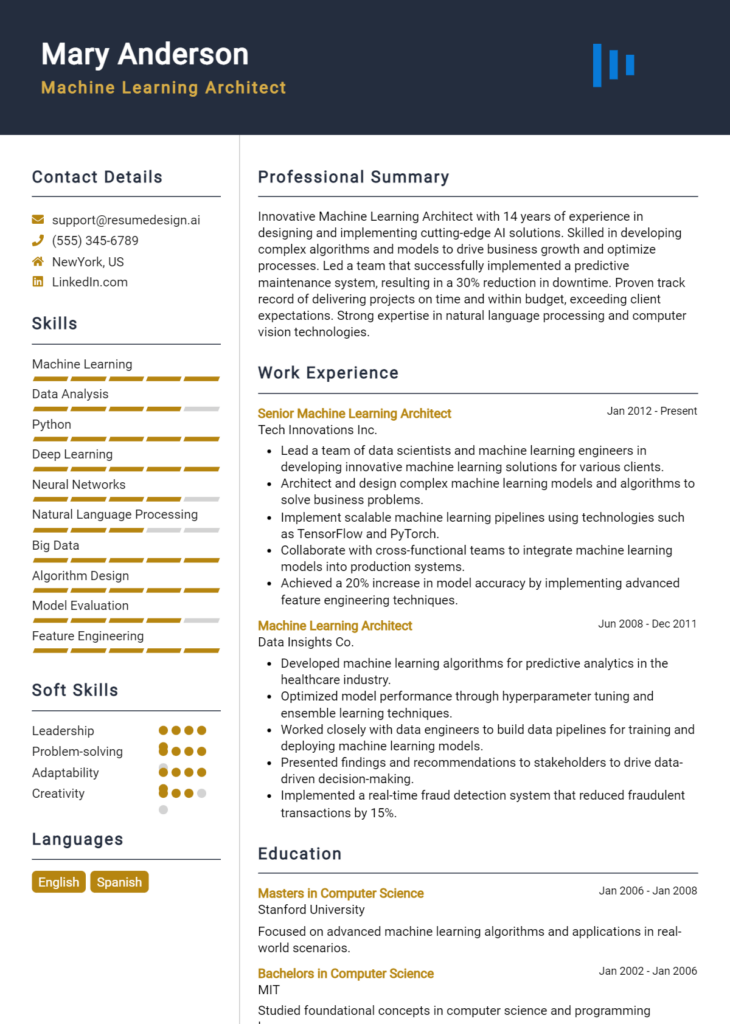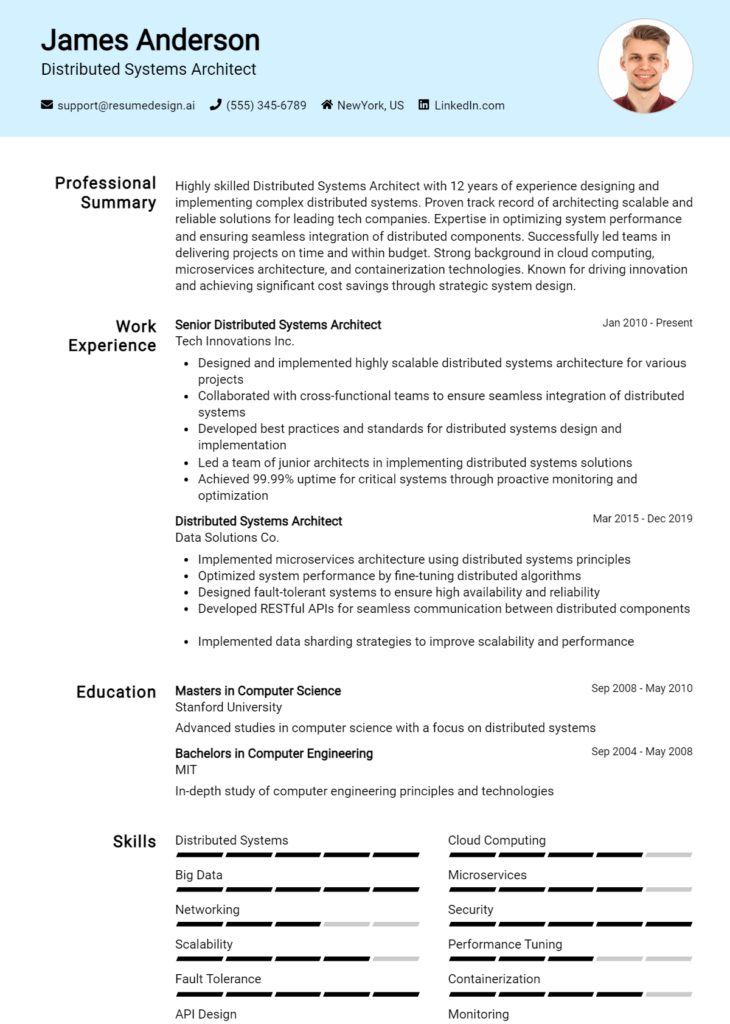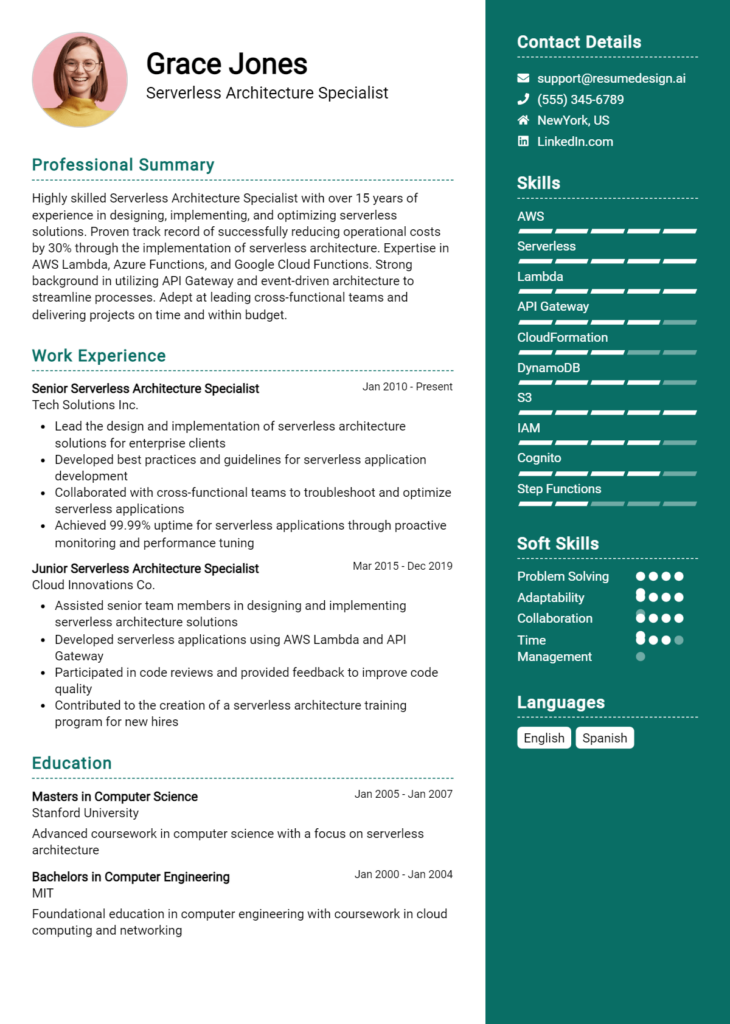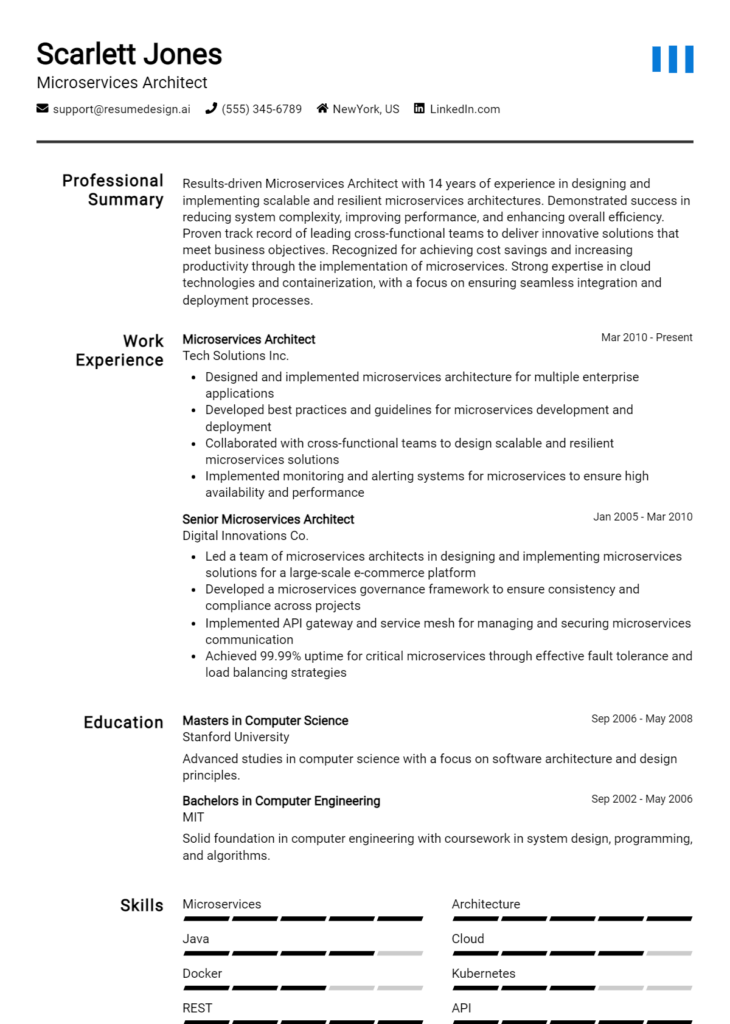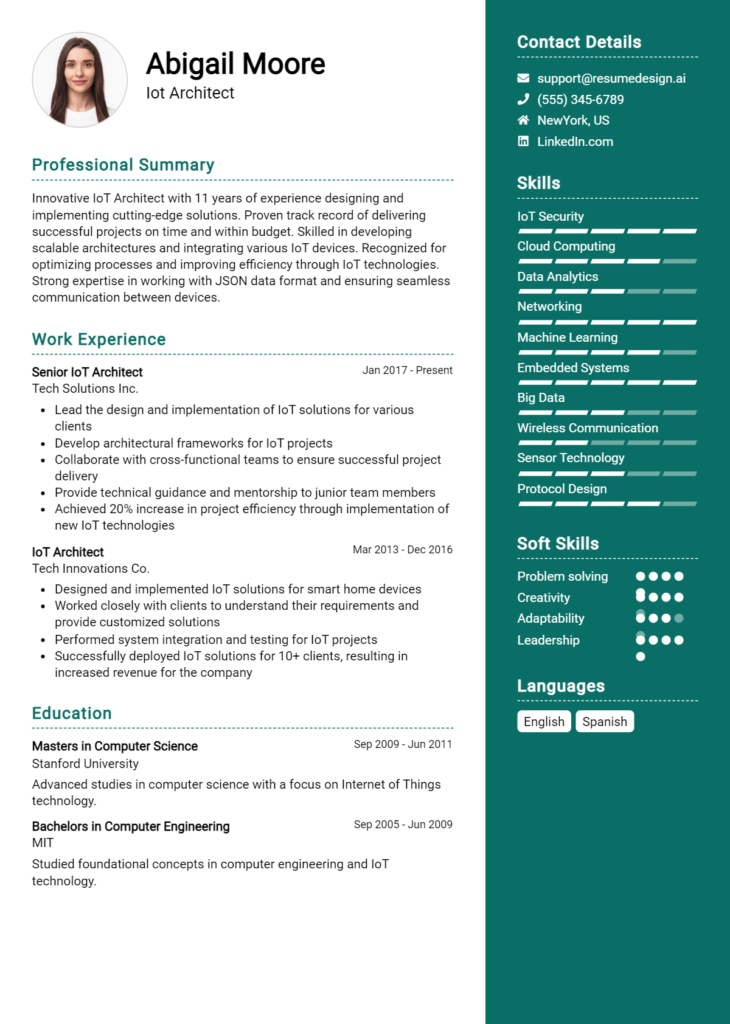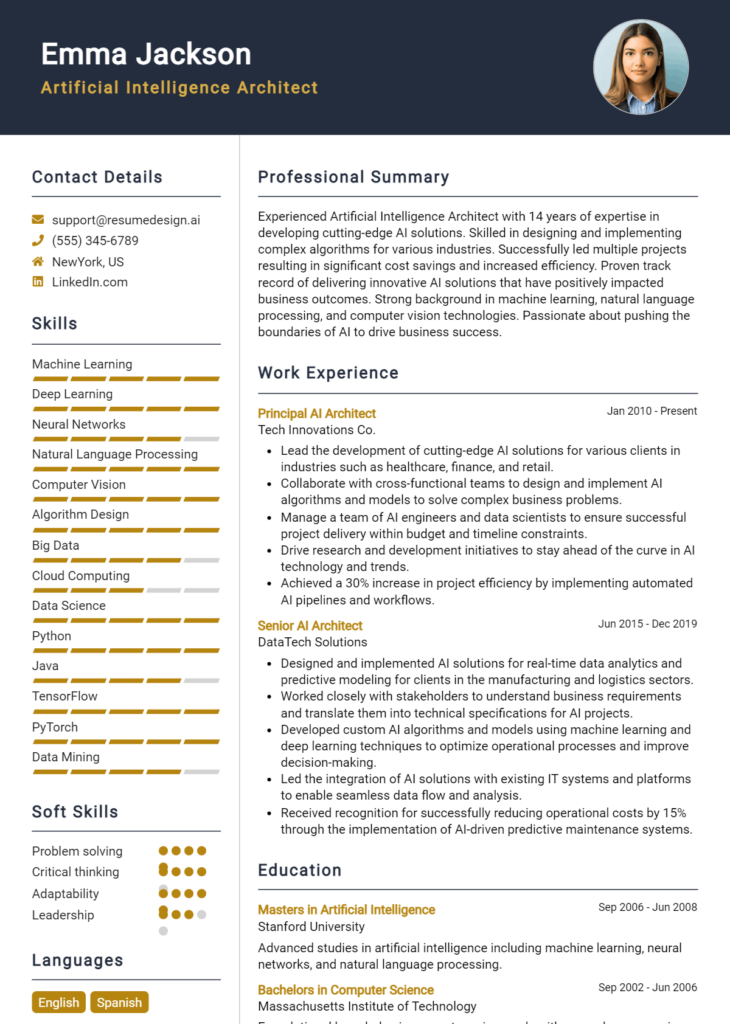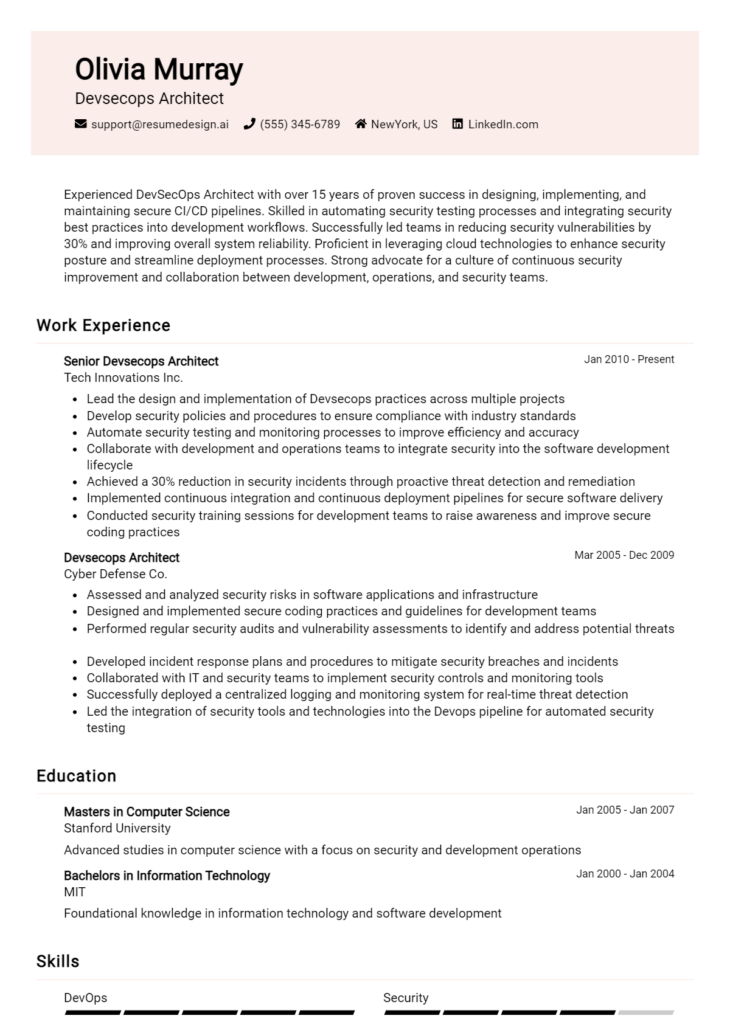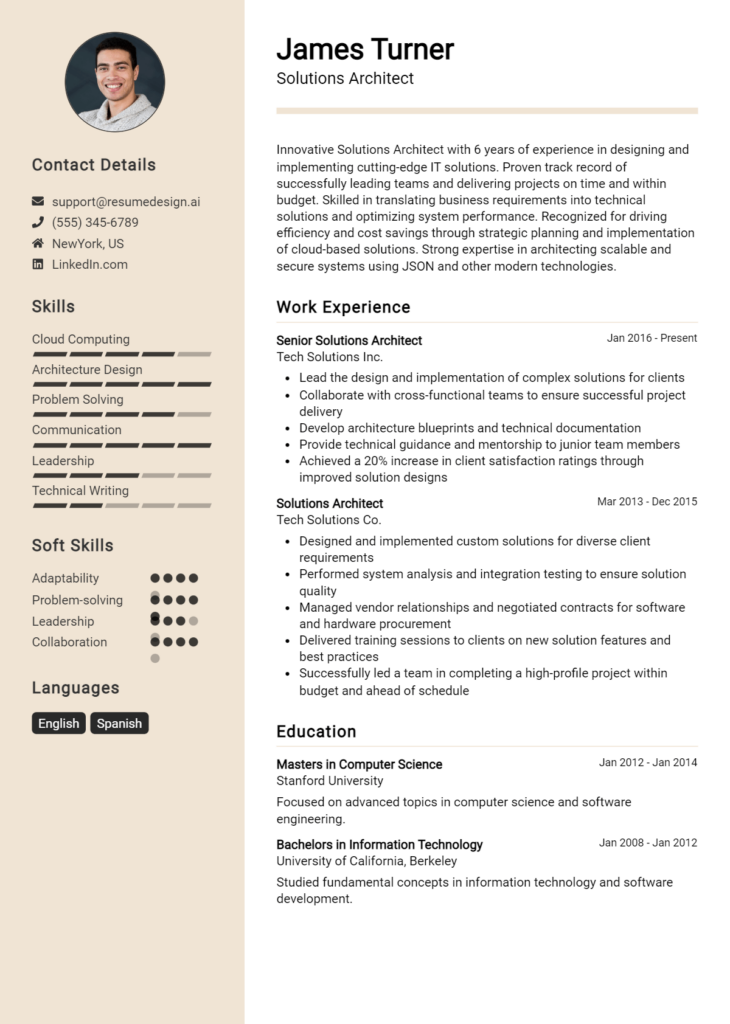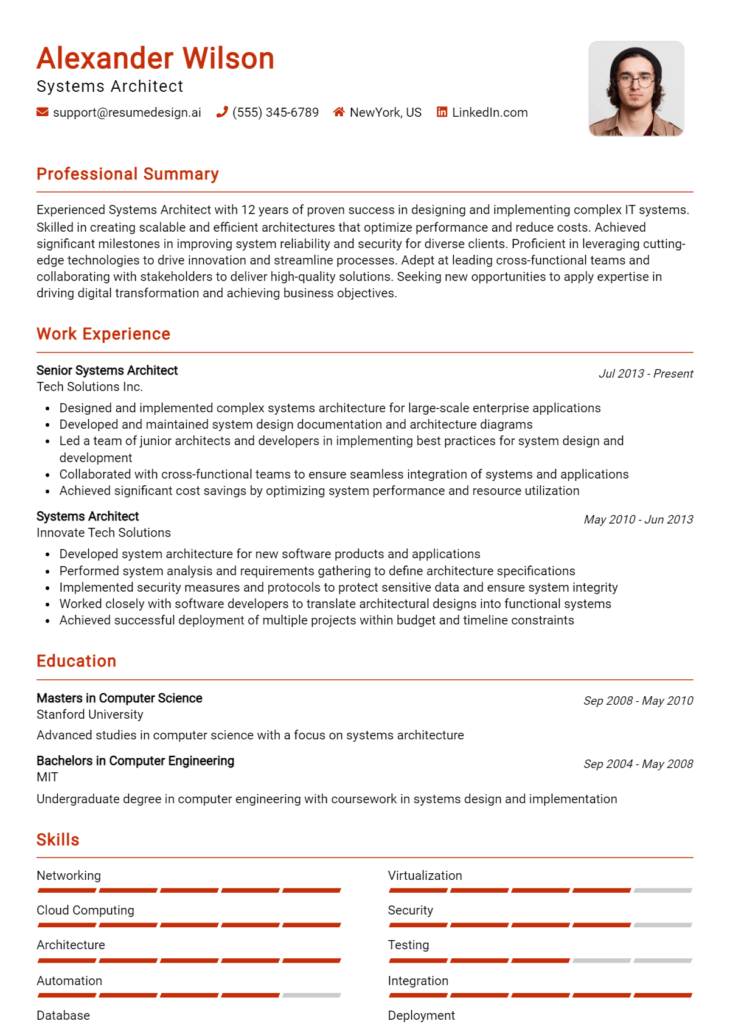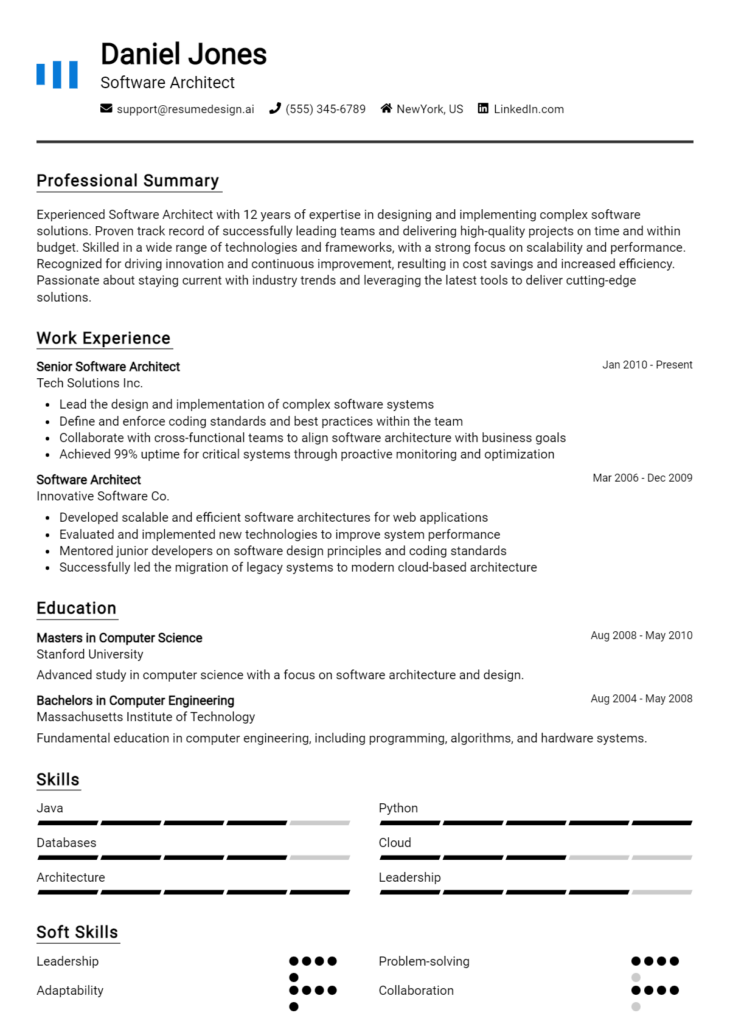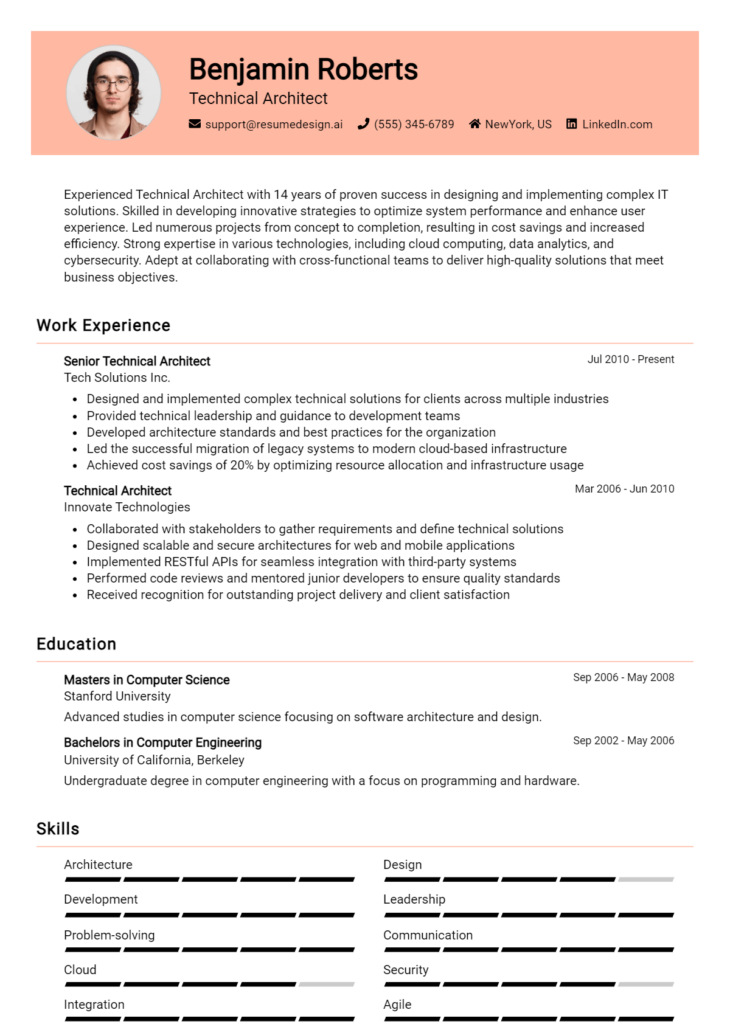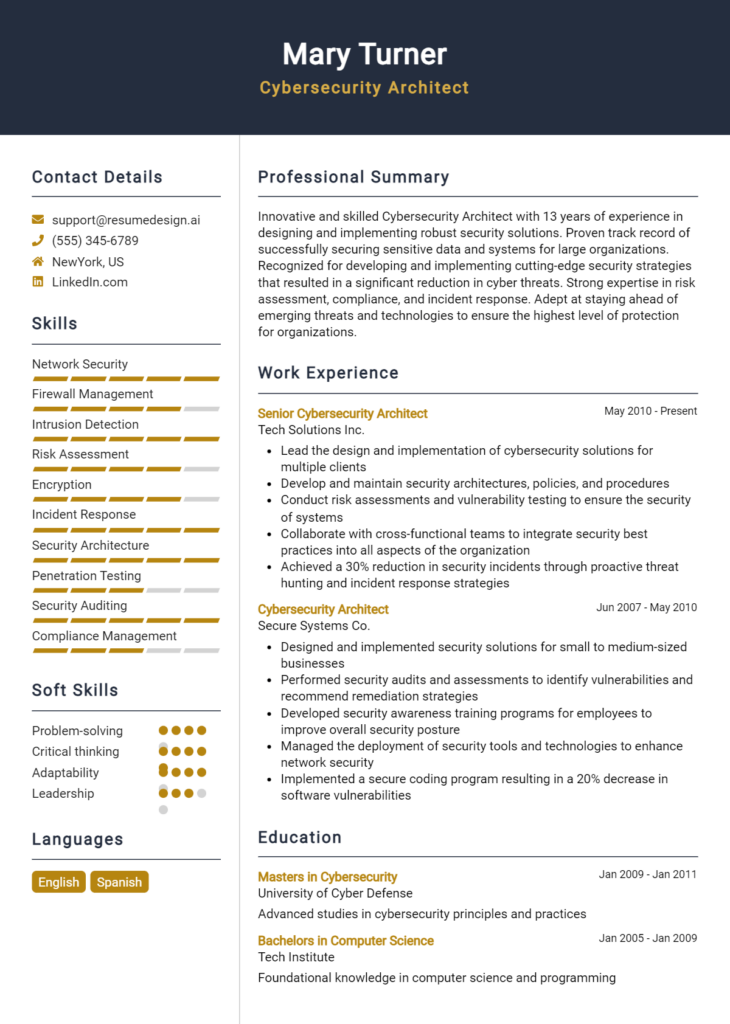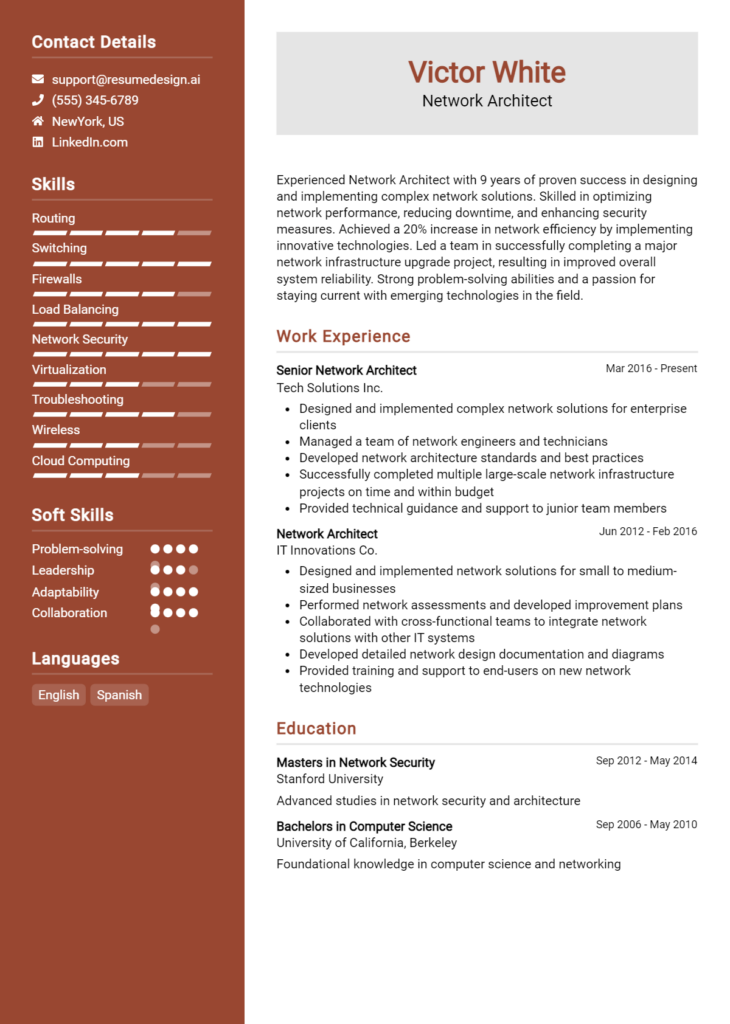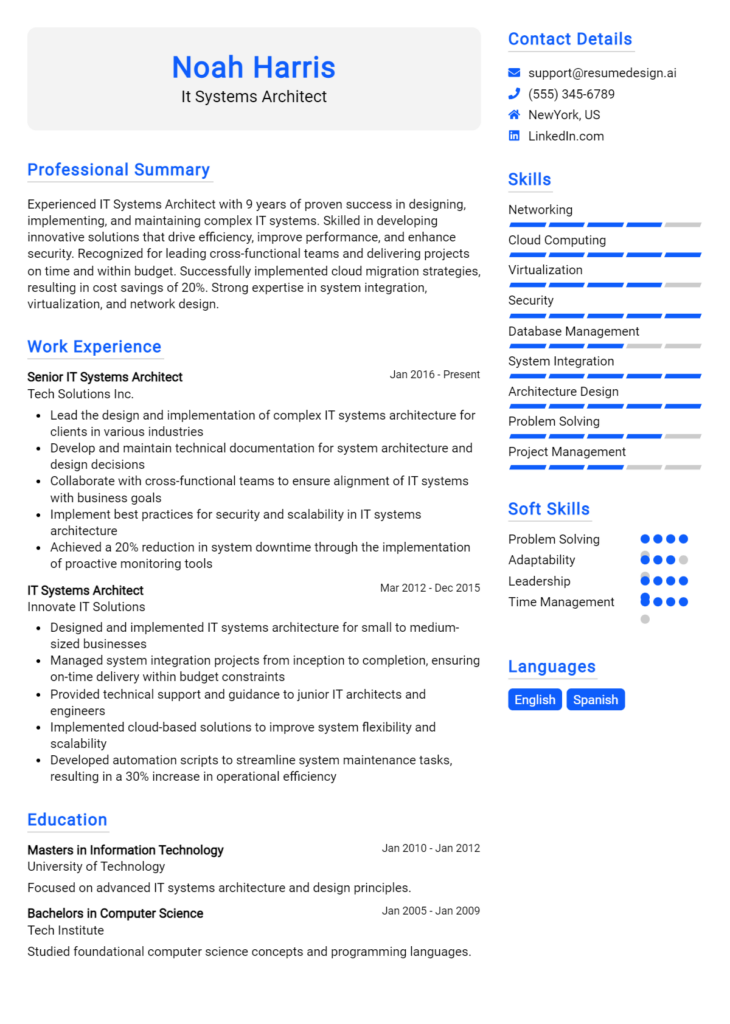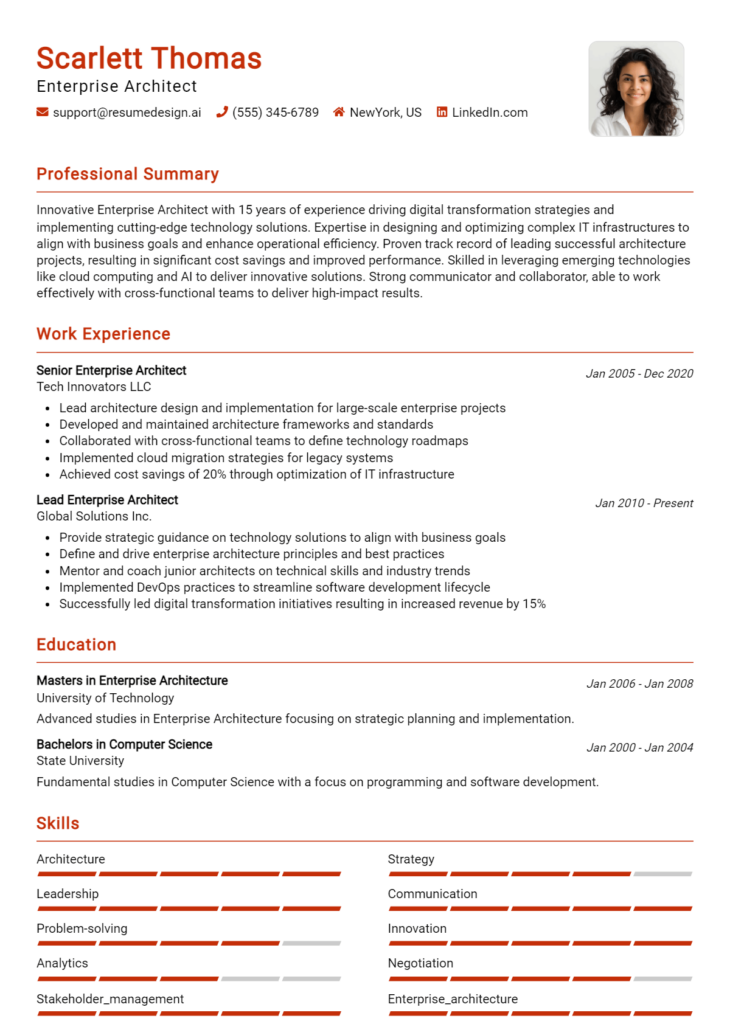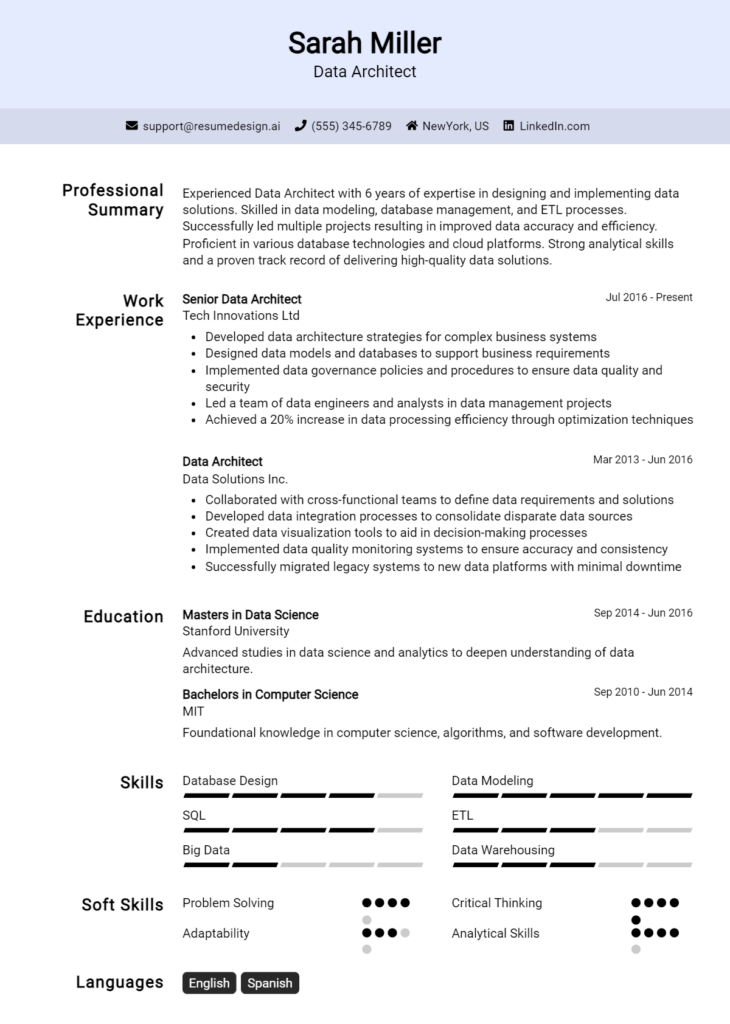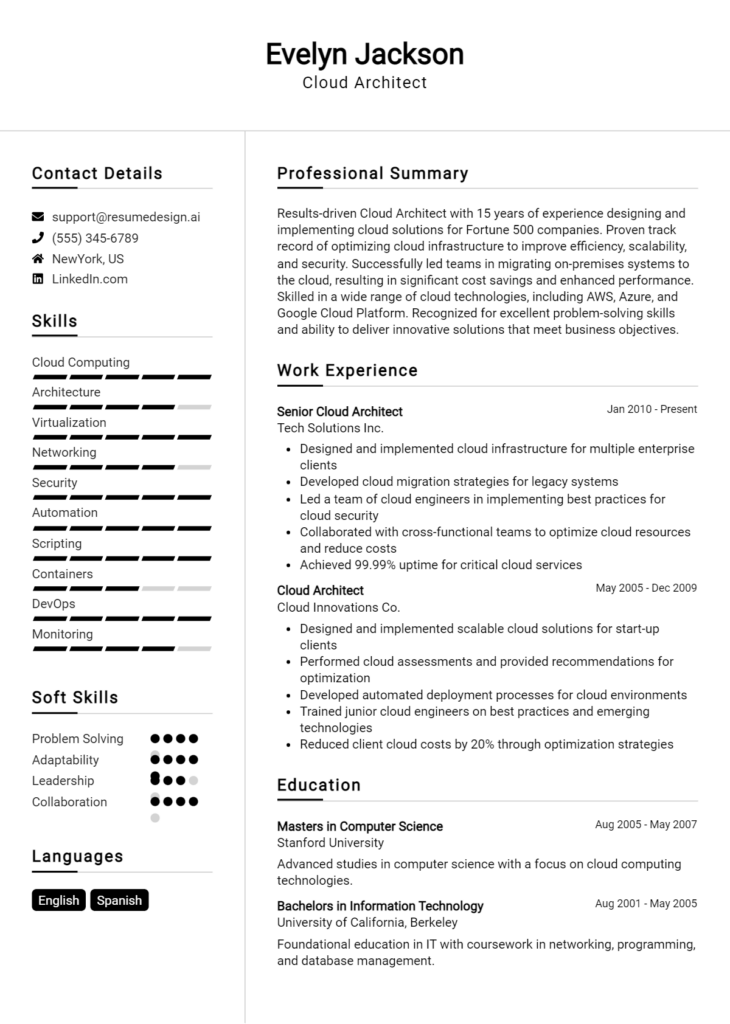Blockchain Architect Core Responsibilities
A Blockchain Architect plays a pivotal role in designing and implementing blockchain solutions that align with an organization's strategic goals. This professional bridges various departments, ensuring seamless integration of technology with business processes. Key responsibilities include developing architecture, evaluating blockchain technologies, and collaborating with stakeholders. Strong technical skills, operational understanding, and advanced problem-solving abilities are essential for success. A well-structured resume highlighting these qualifications can significantly enhance a candidate's appeal in a competitive job market.
Common Responsibilities Listed on Blockchain Architect Resume
- Design and develop scalable blockchain architectures.
- Evaluate and recommend blockchain technologies and platforms.
- Collaborate with cross-functional teams to define project requirements.
- Implement security measures to protect blockchain networks.
- Conduct risk assessments and create mitigation strategies.
- Stay updated on industry trends and emerging technologies.
- Develop and maintain documentation for blockchain systems.
- Provide technical guidance and support to development teams.
- Facilitate training sessions and workshops on blockchain technology.
- Monitor and optimize blockchain performance and scalability.
- Engage with external partners and stakeholders for integrations.
High-Level Resume Tips for Blockchain Architect Professionals
In the competitive field of blockchain technology, a well-crafted resume is not just a document; it's a powerful marketing tool that can significantly influence a candidate's career trajectory. For Blockchain Architect professionals, the resume often serves as the first impression that potential employers have, making it crucial to present a compelling narrative that showcases both technical skills and notable achievements. A strategically designed resume can effectively communicate your expertise, project experience, and unique contributions to the blockchain ecosystem. This guide offers practical and actionable resume tips tailored specifically for Blockchain Architect professionals, helping you to stand out in this fast-evolving industry.
Top Resume Tips for Blockchain Architect Professionals
- Tailor your resume to each job description by incorporating relevant keywords and phrases that align with the specific requirements of the role.
- Highlight your experience with blockchain technologies such as Ethereum, Hyperledger, or Corda, providing specific examples of projects you’ve worked on.
- Quantify your achievements whenever possible, using metrics to demonstrate the impact of your work (e.g., improved transaction speeds by X% or reduced costs by Y%).
- Emphasize your understanding of cryptographic principles and security protocols, as these are critical aspects of blockchain architecture.
- Showcase your ability to design scalable and robust blockchain solutions, detailing the architecture and frameworks you used.
- Mention any certifications or training in blockchain technology, as these credentials can enhance your credibility as a candidate.
- Include collaboration and leadership experiences, illustrating your ability to work within diverse teams and lead projects effectively.
- Keep your format clean and professional, ensuring that your resume is easy to read and visually appealing.
- Highlight any contributions to open-source projects or community involvement, as this demonstrates your passion and commitment to the blockchain field.
- Regularly update your resume to reflect new skills, technologies, and projects to ensure it remains relevant and competitive.
By implementing these tips, Blockchain Architect professionals can significantly enhance their resumes, making them more appealing to potential employers. A well-optimized resume not only showcases your skills and experiences but also increases your chances of landing an interview, ultimately paving the way for a successful career in the blockchain domain.
Why Resume Headlines & Titles are Important for Blockchain Architect
In the competitive landscape of blockchain technology, a Blockchain Architect plays a pivotal role in designing and implementing innovative solutions that leverage the power of decentralized systems. As such, crafting a compelling resume headline or title is crucial for candidates aspiring to this position. A strong headline can immediately capture the attention of hiring managers, effectively summarizing a candidate's key qualifications in a single impactful phrase. It serves as the first impression, setting the tone for the rest of the resume. Therefore, it is essential that the headline is concise, relevant, and directly aligned with the job being applied for, ensuring it resonates with the specific requirements of the role.
Best Practices for Crafting Resume Headlines for Blockchain Architect
- Keep it concise: Aim for no more than 10-12 words.
- Be role-specific: Tailor the headline to reflect the Blockchain Architect position.
- Highlight key skills: Incorporate critical competencies that are in demand.
- Showcase experience: Mention years of relevant experience or notable projects.
- Use impactful language: Choose verbs and adjectives that convey authority and expertise.
- Avoid jargon: Keep language clear and accessible to a broad audience.
- Include certifications: If applicable, mention relevant blockchain certifications.
- Align with job description: Mirror keywords and phrases from the job listing.
Example Resume Headlines for Blockchain Architect
Strong Resume Headlines
"Certified Blockchain Architect with 8+ Years in Decentralized Solutions"
“Innovative Blockchain Architect Specializing in Smart Contracts and DApps"
“Experienced Blockchain Architect Driving Enterprise Solutions for Fortune 500 Companies"
“Blockchain Architect with Proven Track Record in Scalable Infrastructure Design"
Weak Resume Headlines
“Blockchain Expert Looking for a Job"
“Professional with Experience in Blockchain"
“Seeking Opportunities in Technology"
The strong headlines are effective because they are specific, clearly articulating the candidate's relevant skills, experience, and areas of expertise that align with the role of a Blockchain Architect. They provide hiring managers with a quick snapshot of what the candidate brings to the table, making them more likely to engage with the resume. In contrast, the weak headlines fail to make an impact due to their vagueness and lack of focus on the specific job requirements. They do not convey the unique value the candidate offers, leading to a missed opportunity to stand out in a saturated job market.
Writing an Exceptional Blockchain Architect Resume Summary
A well-crafted resume summary is crucial for a Blockchain Architect as it serves as the first impression for hiring managers, effectively capturing their attention in a competitive job market. A strong summary succinctly highlights key skills, relevant experience, and significant accomplishments that align with the specific requirements of the position. By being concise and impactful, it sets the tone for the rest of the resume, making it easier for recruiters to recognize the candidate's potential value to their organization.
Best Practices for Writing a Blockchain Architect Resume Summary
- Quantify Achievements: Use numbers and metrics to demonstrate the impact of your work, such as the percentage of cost savings or performance improvements.
- Focus on Skills: Highlight specific technical skills relevant to blockchain technology, such as smart contracts, consensus algorithms, or cryptography.
- Tailor for the Job: Customize your summary to reflect the requirements and keywords found in the job description you are applying for.
- Keep it Concise: Aim for a summary that is 3-5 sentences long, making it easy for readers to quickly grasp your expertise.
- Use Action Verbs: Start sentences with dynamic action verbs that convey your achievements and contributions effectively.
- Showcase Relevant Experience: Include specific projects or roles that demonstrate your expertise in blockchain architecture.
- Highlight Certifications: Mention any relevant certifications or training that bolster your qualifications in the blockchain space.
- Maintain Professional Tone: Keep the language professional and focused, avoiding overly casual phrases or jargon that may confuse the reader.
Example Blockchain Architect Resume Summaries
Strong Resume Summaries
Results-driven Blockchain Architect with over 7 years of experience in designing and implementing decentralized applications. Successfully led a team that increased transaction throughput by 40% and reduced costs by 30% through innovative smart contract solutions.
Experienced Blockchain Architect specializing in enterprise-level solutions, with a proven track record of deploying secure blockchain networks that support over 1 million transactions per day. Certified in Ethereum and Hyperledger technologies.
Dynamic Blockchain Architect with expertise in cryptographic protocols and distributed ledger technology, recognized for developing a blockchain-based supply chain management system that improved transparency and reduced fraud by 25%.
Innovative Blockchain Architect with a strong foundation in consensus algorithms and network security, successfully launching a multi-currency wallet application that achieved a 95% user satisfaction rate and processed over $10 million in transactions within its first year.
Weak Resume Summaries
Blockchain Architect with some experience in the field. Looking for opportunities to grow and learn more about blockchain technology.
A highly skilled professional interested in working with blockchain. Familiar with various technologies and eager to apply knowledge in a new role.
The examples of strong resume summaries stand out due to their use of quantifiable achievements, specific skills relevant to the blockchain domain, and a clear alignment with industry needs. In contrast, the weak summaries lack specificity, measurable outcomes, and a clear understanding of the candidate's expertise, making them less compelling to hiring managers looking for qualified candidates.
Work Experience Section for Blockchain Architect Resume
The work experience section of a Blockchain Architect resume is crucial as it serves as a platform to demonstrate the candidate's technical skills, leadership capabilities, and knack for delivering high-quality products. This section not only highlights the candidate's hands-on experience with blockchain technologies but also reflects their ability to manage teams effectively and oversee complex projects. By quantifying achievements and aligning their experience with industry standards, candidates can provide compelling evidence of their expertise, making a strong case for their fit in the competitive blockchain landscape.
Best Practices for Blockchain Architect Work Experience
- Clearly outline technical skills relevant to blockchain technologies, such as smart contracts, consensus algorithms, and cryptographic protocols.
- Quantify achievements with specific metrics, such as percentage improvements in efficiency or reduced costs.
- Highlight leadership roles and team management experiences to demonstrate the ability to guide projects and mentor team members.
- Use industry-specific language and terminology to align with the expectations of hiring managers.
- Describe collaboration with cross-functional teams to showcase versatility and adaptability in working environments.
- Focus on problem-solving instances where blockchain solutions significantly impacted business outcomes.
- Include relevant certifications or training to validate expertise in blockchain technology.
- Tailor the work experience section to match the job description, ensuring the most relevant experiences are emphasized.
Example Work Experiences for Blockchain Architect
Strong Experiences
- Led a team of 10 in developing a decentralized application that increased transaction speed by 40%, enhancing user satisfaction and driving a 30% growth in user adoption.
- Designed and implemented a secure smart contract framework that reduced the average cost of contract execution by 25%, resulting in significant savings for clients.
- Collaborated with cross-functional teams to deploy a blockchain solution that streamlined supply chain processes, reducing delivery times by 15% and improving transparency.
Weak Experiences
- Worked on blockchain projects.
- Participated in team meetings related to blockchain development.
- Involved in discussions about improving blockchain applications.
The examples labeled as strong provide specific, quantifiable outcomes and demonstrate clear leadership and collaboration, showcasing the candidate's impact within their roles. In contrast, the weak experiences are vague, lacking measurable achievements or specific responsibilities, which diminishes their effectiveness in conveying the candidate's capabilities and contributions in the blockchain space.
Education and Certifications Section for Blockchain Architect Resume
The education and certifications section of a Blockchain Architect resume is crucial as it serves as a testament to the candidate's academic background, industry-relevant qualifications, and commitment to continuous learning in a fast-evolving field. By showcasing relevant coursework, certifications, and any specialized training, this section not only enhances the candidate's credibility but also aligns their qualifications with the specific demands of the job role. Employers seek professionals who are not only well-educated but also actively engaged in ongoing professional development, making this section a key component of a successful resume.
Best Practices for Blockchain Architect Education and Certifications
- Include degrees in relevant fields such as Computer Science, Information Technology, or Blockchain Technology.
- Highlight industry-recognized certifications like Certified Blockchain Architect (CBA) or Certified Ethereum Developer.
- Detail specialized training or workshops that focus on blockchain frameworks, smart contracts, or decentralized applications.
- Provide context for coursework by relating it directly to blockchain applications or technologies.
- Ensure that all certifications are current and relevant to the latest blockchain advancements.
- List any continuing education credits or programs that demonstrate a commitment to staying updated in the field.
- Be specific about the skills gained from each certification or course, linking them back to the responsibilities of a Blockchain Architect.
- Prioritize certifications that are recognized by industry leaders or blockchain organizations.
Example Education and Certifications for Blockchain Architect
Strong Examples
- Bachelor of Science in Computer Science, University of XYZ, 2018
- Certified Blockchain Architect (CBA), Blockchain Training Alliance, 2021
- Advanced Smart Contract Development, Coursera, 2022
- Master’s Degree in Distributed Ledger Technologies, ABC University, 2023
Weak Examples
- Bachelor of Arts in Philosophy, University of ABC, 2015
- Certification in Basic Computer Skills, Online Institution, 2016
- Diploma in Data Entry, Community College, 2014
- Outdated Certification in Bitcoin Mining, 2017
The examples provided are considered strong because they directly relate to the skills and knowledge necessary for a Blockchain Architect role, showcasing relevant degrees and certifications that demonstrate expertise in blockchain technology. In contrast, the weak examples highlight qualifications that are either unrelated to the field of blockchain or outdated, which do not provide any real value in the context of this specialized job role.
Top Skills & Keywords for Blockchain Architect Resume
A well-crafted resume is essential for a Blockchain Architect, as it serves as the first impression to potential employers. Highlighting the right skills can differentiate a candidate in a competitive job market, showcasing their technical capabilities and soft skills that are crucial for success in this innovative field. A strong emphasis on both hard and soft skills not only reflects the candidate's expertise but also their ability to collaborate effectively within a team and communicate complex ideas clearly. Understanding the balance between these skills can significantly enhance a resume, making it more appealing to hiring managers.
Top Hard & Soft Skills for Blockchain Architect
Soft Skills
- Problem-solving
- Critical thinking
- Communication
- Team collaboration
- Adaptability
- Creativity
- Attention to detail
- Time management
- Leadership
- Strategic planning
Hard Skills
- Blockchain technology expertise
- Smart contract development
- Cryptography
- Distributed ledger technology (DLT)
- Consensus algorithms
- Programming languages (e.g., Solidity, Java, Python)
- Network security
- Cloud computing
- Data structures and algorithms
- API development
For more information on essential skills and how to effectively present your work experience, consider exploring additional resources that can help refine your resume further.
Stand Out with a Winning Blockchain Architect Cover Letter
Dear [Hiring Manager's Name],
I am excited to submit my application for the Blockchain Architect position at [Company Name], as advertised on [Job Board/Company Website]. With a robust background in distributed ledger technologies and a proven track record of designing scalable blockchain solutions, I am eager to contribute to your innovative projects and help drive [Company Name]’s mission to revolutionize [specific industry or application]. My comprehensive understanding of blockchain architecture, combined with my experience in cross-functional team collaboration, positions me uniquely to make a significant impact.
During my previous role at [Previous Company Name], I successfully led the architecture design and implementation of a blockchain-based supply chain management system that reduced transaction times by 30% and enhanced transparency for stakeholders. My hands-on experience with various blockchain platforms, including Ethereum, Hyperledger, and Corda, has equipped me with the skills necessary to evaluate and choose the most suitable technology for specific use cases. Furthermore, my ability to communicate complex technical concepts to non-technical stakeholders has been pivotal in driving project buy-in and fostering a culture of innovation.
I am particularly drawn to [Company Name] due to its commitment to leveraging blockchain for [specific purpose or value proposition]. I am eager to collaborate with your talented team to explore new avenues for growth and efficiency. I am confident that my strategic mindset and passion for emerging technologies will allow me to contribute effectively to your ongoing projects and help shape the future of your blockchain initiatives.
Thank you for considering my application. I look forward to the opportunity to discuss how my background and vision align with the goals of [Company Name]. Please feel free to contact me at [Your Phone Number] or [Your Email Address] to schedule a conversation.
Sincerely,
[Your Name]
[Your LinkedIn Profile or Portfolio URL]
Common Mistakes to Avoid in a Blockchain Architect Resume
When crafting a resume for the role of a Blockchain Architect, it's crucial to present your skills and experiences effectively to stand out in a competitive job market. However, many candidates make common mistakes that can undermine their chances of landing an interview. By avoiding these pitfalls, you can create a compelling resume that highlights your expertise in blockchain technology and showcases your value to potential employers.
Lack of Clear Objective Statement: Failing to include a concise and tailored objective statement can make your resume feel generic. This statement should reflect your career goals and how they align with the job you're applying for.
Overuse of Technical Jargon: While technical expertise is essential, using too much jargon can alienate hiring managers who may not be familiar with all the terms. Aim for a balance between technical language and clear communication.
Neglecting Soft Skills: Focusing solely on technical skills and ignoring soft skills such as communication, teamwork, and problem-solving can present an incomplete picture of your capabilities. Blockchain projects often require collaboration and stakeholder engagement.
Ignoring the Relevance of Projects: Including irrelevant projects or experiences can clutter your resume. Highlight only those projects that demonstrate your blockchain expertise and directly relate to the job description.
Inadequate Formatting: A cluttered or overly complex format can make your resume difficult to read. Use clear headings, bullet points, and consistent formatting to enhance readability and make key information stand out.
Not Quantifying Achievements: Failing to quantify your achievements can leave your impact unclear. Use specific numbers and metrics to illustrate your contributions, such as the percentage of reduced transaction times or increased system efficiency.
Submitting a One-Size-Fits-All Resume: Sending the same resume to multiple employers without tailoring it to each job description can diminish your chances. Customize your resume for each application to reflect the specific requirements and desired skills for the position.
Omitting Continuous Learning: The blockchain field evolves rapidly, and neglecting to mention ongoing education or certifications can make it seem like you're not keeping pace with industry developments. Include relevant courses, certifications, and training to demonstrate your commitment to professional growth.
Conclusion
As a Blockchain Architect, you play a pivotal role in designing and implementing blockchain solutions that meet the specific needs of various organizations. Throughout this article, we have explored the essential skills required for this job role, such as proficiency in blockchain protocols, cryptographic principles, and smart contract development. We also discussed the importance of having a solid understanding of distributed ledger technologies and the ability to collaborate with cross-functional teams.
In summary, the demand for Blockchain Architects continues to grow as organizations seek innovative solutions to enhance security, efficiency, and transparency in their operations. Your expertise is crucial in navigating the complexities of blockchain technology and ensuring successful project delivery.
Now is the time to take action! Review your Blockchain Architect resume to ensure it effectively showcases your skills and experiences. Consider utilizing valuable resources like resume templates, which can help you format your information professionally. Enhance your application with a resume builder that simplifies the creation process. Check out resume examples for inspiration, and don't forget to craft a compelling cover letter using cover letter templates. Equip yourself with the right tools to stand out in this competitive field!

